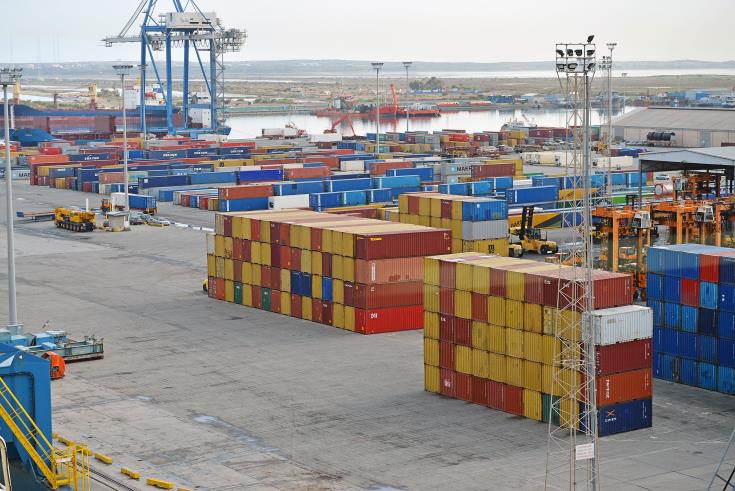UK imports to the island halved within the first year of Brexit, as Cypriot importers turned to EU markets as British products are wrapped in tariffs and red tape.
Stakeholders argue that, although COVID restrictions have played a role, the drop in trade with the United Kingdom is directly the result of Brexit.
Talking to the Financial Mirror, acting secretary of the Cyprus Chamber of Commerce and Industry (CCCI), Leonidas Paschalides, said that imports from the UK have dropped by 43%.
“When comparing the first nine months of 2019, 2020 and 2021, we notice that our imports from the UK have decreased from €431 mln in 2019 to €413 mln in 2020 and €246 mln in 2021,” said Paschalides.
“There’s no doubt. This is Brexit.”
Brexit has worked against UK exports to Cyprus and the bloc.
Paschalides said that while the Trade and Cooperation Agreement provides zero duties and no quotas on products exported/imported from one party to another, other procedures hinder trade with the UK.
“Customs procedures, controls, certificates of conformity, VAT payment on the import of products as well as various other procedures and requirements related to trade with third countries have been introduced.”
Paschalides noted that importers expected several issues with UK products as EU’ rules of origin’ are strict.
“This means that products made in the UK with raw materials imported from a third country will not be treated as UK products. This complicates things quite a bit.”
Cypriot importers are looking for more sustainable imports from EU countries, while some UK companies have set up branches in the bloc to produce and export their products.
“A number of products produced by UK companies are now not being imported directly from the UK, but from countries such as The Netherlands, being scratched off the list of UK imports.”
Paschalides noted the drop in imports is across the board, from foodstuffs chemical and pharmaceutical products to cosmetics and clothing.
“Of course, part of the drop is attributable to higher costs of importing used vehicles from the UK, which Cypriots favoured for decades.
“One could argue the decline in imports from the UK is largely due to the pandemic but also to the disruptions and price increases observed in the supply chain and transport, both maritime and by land.
“Without any intention of downplaying these factors, which have indeed affected global trade, the statistics on total imports of Cyprus show they increased from €5.4 bln in January – September 2020 to €6.1 bln the same period in 2021 “.
UK slide
The UK was third on the list of countries from which Cyprus imported goods in 2020; it is now seventh.
“So, it is easy to conclude the main reason for the reduction is unfortunately Brexit.”
Asked about Cypriot exports to the UK, Paschalides said they had recorded small increases over the past three years.
But they could be affected over the next couple of years as the UK has yet to implement a part of the Brexit deal regarding imports from the EU.
Exports to the UK were €117 mln in 2019, €129 mln in 2020 and €134 mln in 2021.
Cyprus export to the UK are mainly dairy products, fruit and vegetables and medicinal products and meet the rules of origin, and therefore no duties are imposed on them.
“The UK has not introduced all the new procedures and regulations regarding imports from the EU in a bid to give British companies more time to prepare for change.”
At the same time, new requirements for importing animal and plant origin products were to be introduced in October 2021, with the timetable currently being revised to give businesses even more time to adapt.
“Therefore, we should not take for granted that our exports to the United Kingdom will be maintained at current levels, although no major reductions should be expected.”










